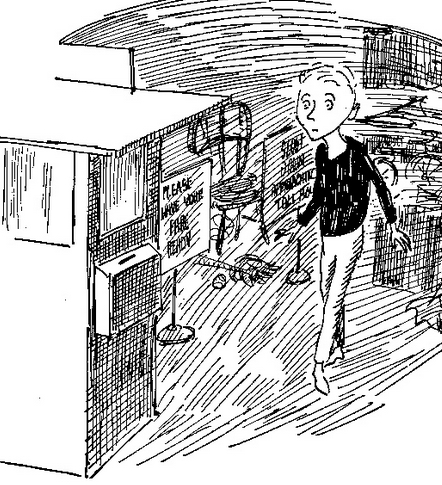When I was a mere slip of a bookwright — a veritable inchbookworm — I stumbled upon several books that rang out to me like bells across a silent snowfield. And, strangely, usually, shortly after I absorbed them, they vanished.
Not because I personally lost them: Never! Books which belonged to me lived secure on a bedroom bookshelf. (Or somewhere else in the house, like Dad’s cookbook nook or Mom’s fiction shelves.) No: these were library books, school library books most often but also sometimes village library property. And once I departed that school and our family moved away from that village, the books might as well have never existed.
As you can tell, I was not one of those methodical children who kept a book diary from their tot-hood, diligently recording every book they read, its author, year of publication, publisher, imprint, and quotes that made a Great Impression upon their young minds.
If I was luckier than lucky, I stumbled over them again when I was old enough to notice such things. Such was the case with Norton Juster’s superb The Phantom Tollbooth. When I rediscovered it in junior high school, I pressed my paperback copy into the hands of every remotely willing reader in my circle of friends. I still have it: it’s battered, scruffy, but I treasure all the pencilled marginal notes and ripostes among my pals.
Why am I suddenly recalled to the Phantom Tollbooth? Because I’ve never forgotten the three precautionary signs (to be used in a precautionary fashion) that Milo unpacks with the tollbooth itself, in the very first chapter. (You can read that chapter on NPR here.) The third sign reads:

Have your destination
in mind…
It’s so obvious, Juster must have grinned to himself at the prospect of making Jules Feiffer illustrate it. If you want to travel the direct route to … that destination … you better know where you want to go.
It turns out, having a destination in mind is also invaluable when you attempt to divest yourself of treasured belongings. About which I will explain more in my next post.


Pingback: The destination makes a difference | Art for Art's Sake Press